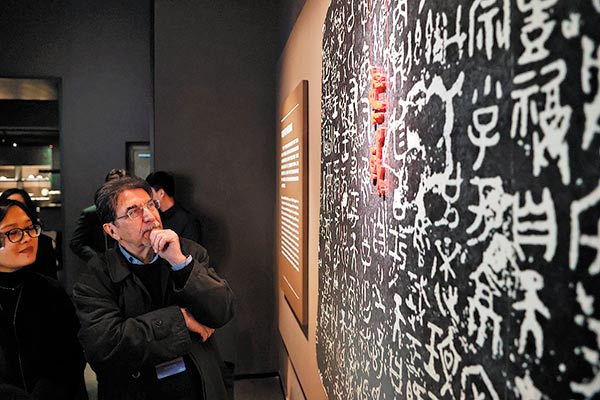

In other words, in Confucianism, nature is viewed less as an object of study, as it was in ancient Greek philosophy, and more as a moral teacher that offers analogical lessons.
Tucker believes that the man-nature relations inherent to Confucianism has a lot to do with ancient China's agricultural tradition, whereby human life is tied to "the way of nature", to use the words of Confucius.
Wu echoes Tucker's idea, saying,"In Confucianism, interconnectedness is emphasized not only between man and nature, but also between man and society. This explains why the Confucian concept of virtue and moral integrity is inextricably linked to one's social engagement and community role."
One man whose philosophy incorporated "the same profound understanding of cosmology as the Chinese philosophers had" — to quote Tucker — was Seneca (4 BC-AD 65) from the post-Augustan Age of ancient Rome. Like his fellow Stoic philosophers, Seneca believed that the universe is a single, interconnected organism governed by rationality, with every part linked by reason.
It's worth noting that about seven decades before the birth of Augustus (63 BC-AD 14), the founder of the Roman Empire who was greatly influenced by Greek philosophy, particularly Stoicism, Confucianism was put on the pedestal by the powerful Emperor Wudi of the Western Han Dynasty (206 BC-AD 24), who made it the guiding philosophy of his reign and beyond.
"Both ancient Greeks and Chinese understood that they were part of something larger," says Tucker. "In our modern world, we've reduced everything to the present moment, to materialism and technology. We have lost our sense of belonging. That's why we need to look at both traditions and to bring them into conversation with each other, and with the issues facing us today."